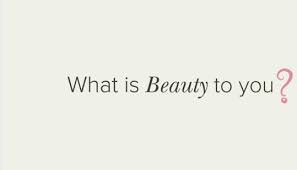Metaphysical poetry
introduction
a group of poets emerged in the begining of seventeenth century. England who inclined to the personal & intellectual , complexity and concentration . which is displayed in poetry of
john donne
the chief of the metaphysicals.
other
henry vaughan
andrew marvell
john Cleveland
abraham cowley
their work is,
blend of emotion intellectual ingenuity.
characterized by conceit or "wit".
metaphysical poetry is less concerned with expressing feeling than with analyzing it, with the poet exploring the recesses of his consiousness.
the boldness of the literary devices used,
obliquity
irony
paradox
are often reinforced by a dramatic directness of language and by rhythms derived from that of living speech.
metaphysical poetry stood higher in 1930 and 40`s largely because of
t.s.eliot's
"The Metaphysical poets"
history of metaphysical poetry
the word
Metaphysical
was used by writers such as John Dryden and Samual Johnson in regards to the poets of the seventeenth century.
"The poets are noted for their unnaturalness."
Johnson wrote in lives of the most eminent english poets in the late 1700s, that "a race of writers " had appeared that might be termed
"Metaphysical poets"
The term was likely taken from Dryden who had described John Donne as affecting "Metaphysics" in his satires and his "verses". It was not until the twentieth century that many poets were adequately recognized for their talent and originality.
Eliot is one of twentieth - century literary critics who helped to establish the well- deserved reputation that writers such as,
John Donne
Andrew Marvell
both held.
who were the Metaphysical poets ?
The best known Metaphysical poet is,
John Donne
He is followed by other such as
Henry Vaughan
Andrew Marvell
George Herbert
Donne is most often cited as the best of his shortlist of writers and the originator of the basic tenants of the Genre. It is because of his writing that many writers who often took on some or all of the features of Metaphysical writing.
Characteristics of Metaphysical Poetry
Spoken quality
Colloquial diction
philosophical exploration
New and original cenceits
Irony
Relaxed use of method
Poets whose works have been categorized as "Metaphysical " often seek out the answers to questions such as,
Does God exist ?
Does humankind really have free choice ?
What is the nature of reality ?
Example of Metaphysical Poetry
The Flea‘
_John Donne
The Flea’ by John Donne is the poet’s most famous poem. In it, he uses one of his brilliant conceits to convince his love to sleep with him.
In the very first line of ‘The Flea,’ the poet-lover asks his beloved to observe the flea carefully. She should notice that first, it sucked his blood and then hers, and in this way, their blood mingles in its body, as they do in sexual intercourse. The flea has enjoyed union with her, without any courtship or marriage. Yet this is not considered any loss of honour; there is neither any sin, nor shame, nor loss of virginity in it. In this respect, the flea is superior to them. She can do, i.e. enjoy the pleasure of physical union, which the lovers cannot enjoy prior to marriage.











